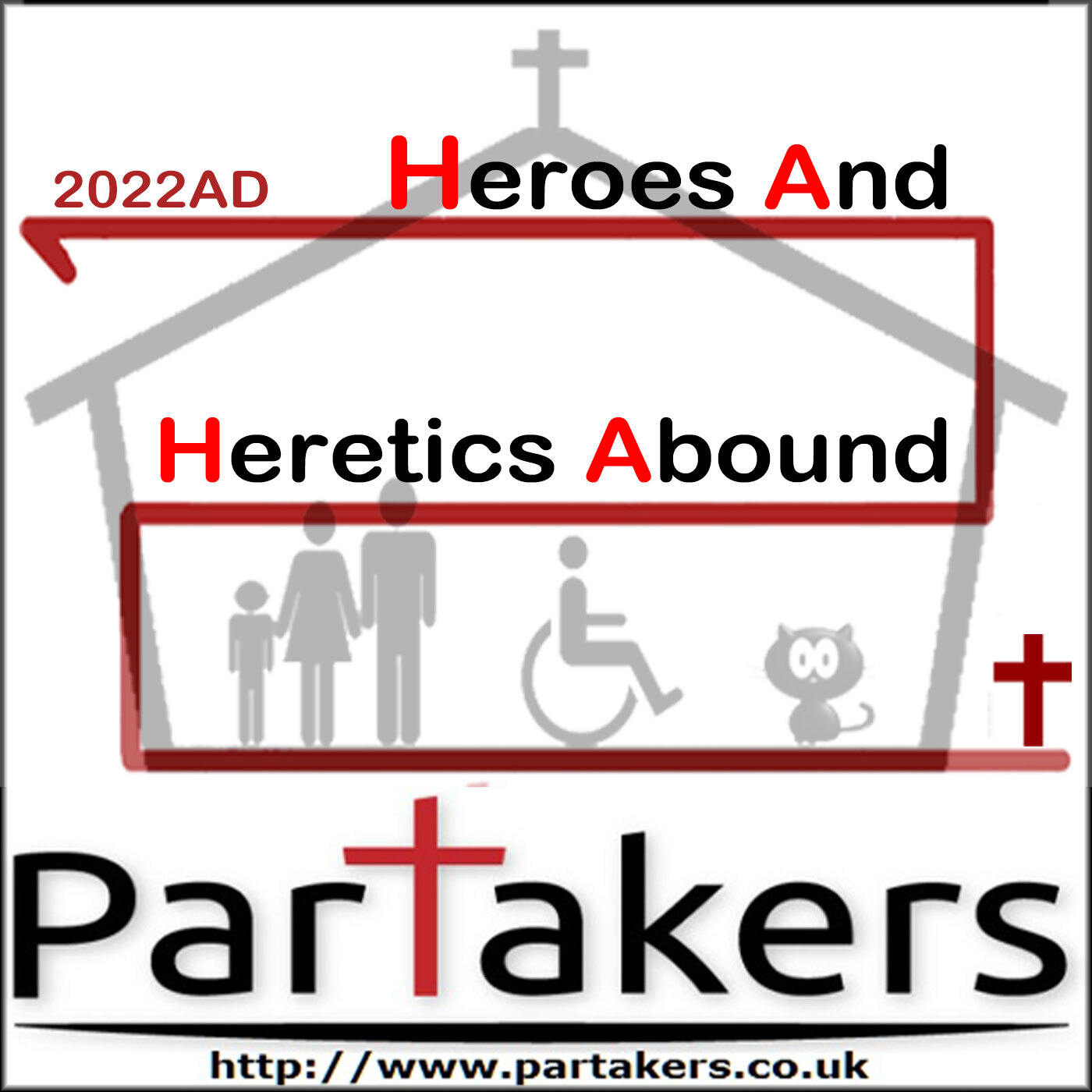
432.2K
Downloads
3368
Episodes
G’day and welcome to Partakers Christian Podcasts! Join us for uplifting Bible teaching, inspiring readings, heartfelt worship, powerful prayers, and fascinating church history. Whether you’re new to faith or growing deeper in your journey, we’re here to encourage and equip you. 🎧 Tune in, interact, and be inspired—wherever you are in the world.
G’day and welcome to Partakers Christian Podcasts! Join us for uplifting Bible teaching, inspiring readings, heartfelt worship, powerful prayers, and fascinating church history. Whether you’re new to faith or growing deeper in your journey, we’re here to encourage and equip you. 🎧 Tune in, interact, and be inspired—wherever you are in the world.
Episodes

Tuesday Nov 04, 2025
Church History Part 25
Tuesday Nov 04, 2025
Tuesday Nov 04, 2025

Part 25
Reformation 2 - Ulrich Zwingli, John Calvin and Persecution
Today we continue with the Protestant Reformation by looking briefly at two other giants of that time – the Swiss reformer, Ulrich Zwingli and the French Reformer, John Calvin.
Ulrich Zwingli (1484-1531)
Zwingli was a Swiss reformer independent of Luther who was greatly influenced strongly by the teachings of Erasmus. He was born during a period of time when Swiss national patriotism was emerging. After studying humanities before taking on the role of pastor in a church in Glarus and later in Einsiedeln.
It was in 1518 that Zwingli became pastor of Grossmunster in Zurich. Here he preached about reforming the Roman Catholic church. He was particularly critical of fasting during Lent, church hierarchy, clerical celibacy and the use of image in worship. In 1525, he produced a new liturgy to replace the Roman Catholic liturgy.
These ideas soon came to the attention of Martin Luther and other reformers. When they met, they did agree on many things but differed on several y matters. Zwingli taught that the Lord's Supper was purely symbolic and the elements of bread and wine did not change literally into the flesh and blood of Jesus Christ and nor did they at any point contain the real presence of Jesus Christ.
His reforms went from Switzerland to France, Scotland, Hungary, Holland, Germany, England, Puritans). Zwingli was killed in 1531 during an attack by his enemies within the Roman Catholic church on a food blockade supported by him.
Zwingli’s theology held the supremacy of the Bible, being the inspired word of God, over the teachings of humans such as the Church Councils and Church Fathers.
Concerning baptism, Zwingli differed from the Anabaptists who promote adult baptism only. Zwingli taught that the baptism of children was valid, describing that it was symbolic of God’s covenant with the Christian, much the same as it was when God made His covenant with Abraham.
He also promoted a non-Roman Catholic view of Church Government and Worship. Zwingli thought that the government was instituted by God and that they governed with divine approval. He taught that Christians were obliged to be obedient to their governments but to be disobedient only when the government acted in a manner to God’s will.
John Calvin
Our next giant is John Calvin! He was French and greatly influenced by Martin Luther. Trained as a lawyer, he broke away from the Roman Catholic church in 1530. During persecution by the Roman Catholic church on the reformation movement, Protestants, Calvin fled to Switzerland. There, in 1536, Calvin published the first edition of his now famous “Institutes of the Christian Religion.”
Calvin went onto introduce new forms of church government and worship liturgy despite opposition from secular authorities and people of power. In his final years, Calvin continued unabatedly to promote the Reformation of the church throughout Europe. During this time he also kept busy writing commentaries and regularly preached in churches. Prime to his thinking was Augustinian teaching, leading him to propose the doctrine of predestination and the absolute sovereignty of God in salvation and damnation.
Protestant persecution.
While the Reformation was only in its infancy, there was intense persecution of the Reformation Protestants by the Roman Catholic Church, particularly in Spain, France and the Netherlands. Thousands of Protestants died in battle and through persecution. It was during this time that the printing press was invented and was the catalyst for the rapid promotion and distribution of these new ideas of Luther, Zwingli, Calvin and others.
During this time also, we have noted that there was intense theological debate between the Reforming Protestants over such things as worship, predestination, the Lord's Supper and style of Church government. During this period, the Roman Catholic Church evangelised and rapidly gained new ground and more than made up for the losses to Protestantism. The Roman Catholic church did respond with a Counter Reformation. Commencing with the Council of Trent and the beginning of the Jesuits, these were designed to counter the Reformation movement. The majority of Northern Europe became Protestant, while Central Europe sank into deep conflict.
In the mid-1500's many Protestant Christians rejected both the Roman Catholic Church, and Lutheranism for not having gone far enough. They stressed personal discipleship; a daily walk with God; a principle of love and pacifism; the Church as a family not an organisation; adult baptism; congregational Church government; and the separation of Church and State, The spread through Europe and were intensely persecuted by both the Roman Catholic Church and other Protestants resulting in many deaths. One of their leaders was Menno Simons (1496-1561), whose group the Mennonites, are still functioning today.
That’s it for this time! Next time in our series HAHA, we will look at the Reformation gathering pace - this time in England!

No comments yet. Be the first to say something!